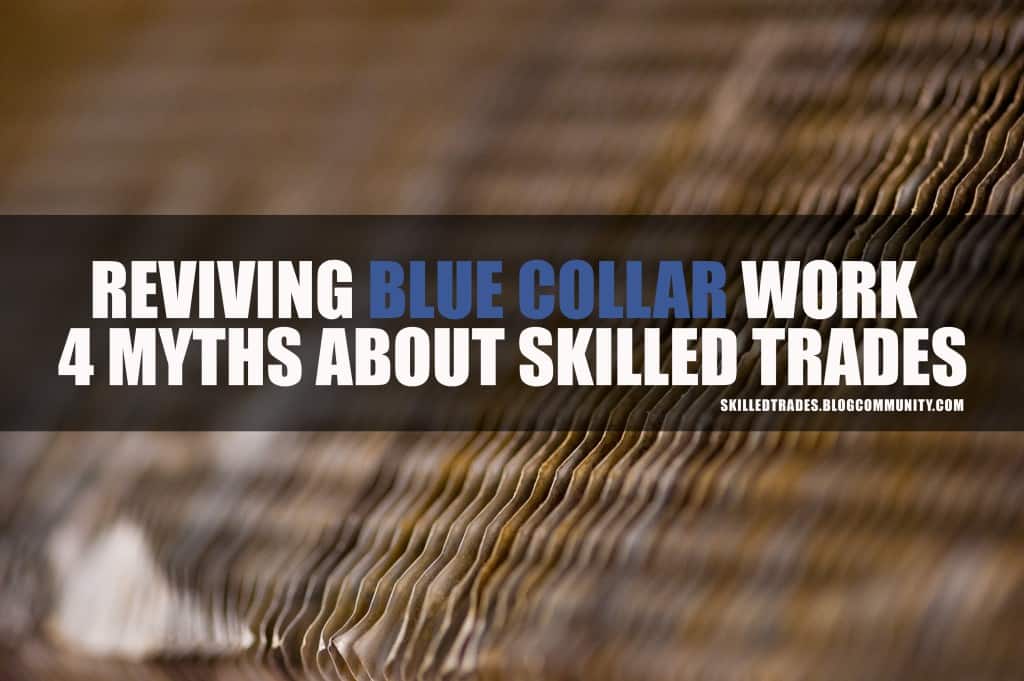What do you think about when you think about skilled trades or blue-collar work? A thriving career that allows you to get your hands dirty and do what you love to do? If that’s not what you think of, it should be.
Blue-collar is defined as “a descriptive used to describe a manual worker, ” aka workers who aren’t afraid to get their hands dirty.
Now, we’re not saying while-collar workers are afraid to get their hands dirty, we’re just saying it’s not what they do day-to-day. If working in an office setting is your thing, that’s totally cool and if it’s not, that’s totally cool, too.
The guys at The Art of Manliness understand this too, so they decided to revive blue-collar work and discuss 4 myths about skilled trades.
Myth 1. Blue-collar work is beneath white-collar work.
Now we all know this is not true, but the notion that it is might still be out there. Since ancient times, manual labor has been perceived as “lesser” work. While “intellectual” work (aka white-collar work) was perceived to take more skill, therefore better. Again, this is not true. One is not better than the other, they are just different. They both require skill. They both require smarts. They both require determination.
Myth 2. Blue-collar work isn’t creative or intellectually stimulating.
Nope. Not true. Many people think that manual labor is monotonous and mindless. That is simply not the case. Skilled trades require quick thinking and problem-solving and are often very creative. (Did you see our previous post about welding art?)
Myth 3. You have to follow you passion, and welding isn’t your passion.
Seriously? Do you know what I am passionate about? Nope. If welding, or heating and air, or mechanics is what you are passionate about, only you know that. Follow your dreams!
Myth 4. Dirty, hard work is undesirable work.
Have you heard the saying “work smart not hard?” Probably. It needs to be changed to “work smart AND hard.” Any work, regardless of whether it is a “dirty” job or not requires you to work smart and hard. If your dream is to work in a “dirty job”, then work in a dirty job. Don’t let anyone tell you it is “undesirable”.
To see the full article on The Art of Manliness, click here.








